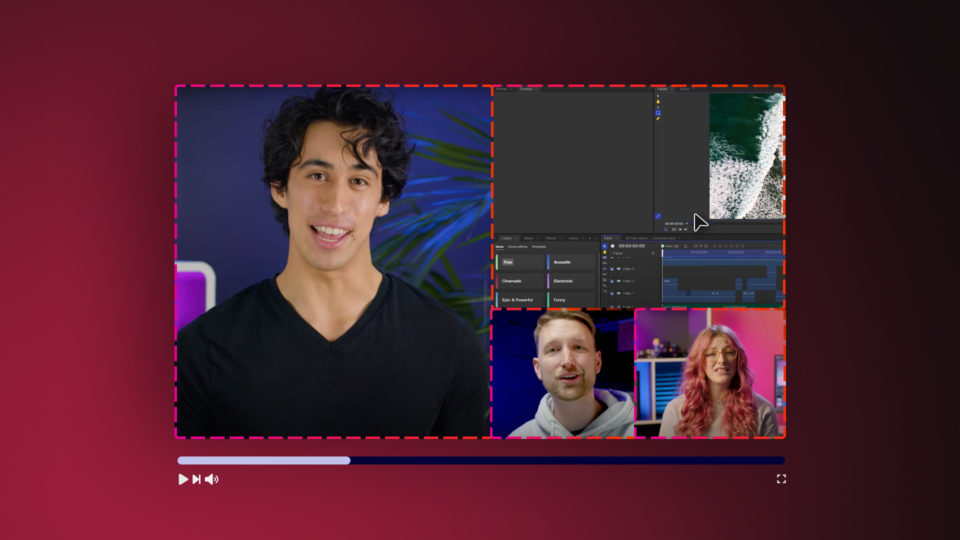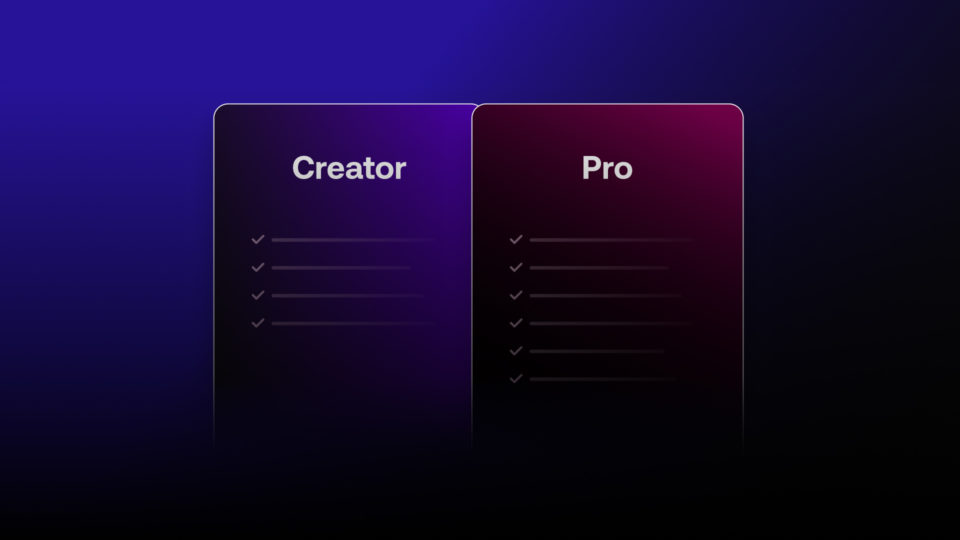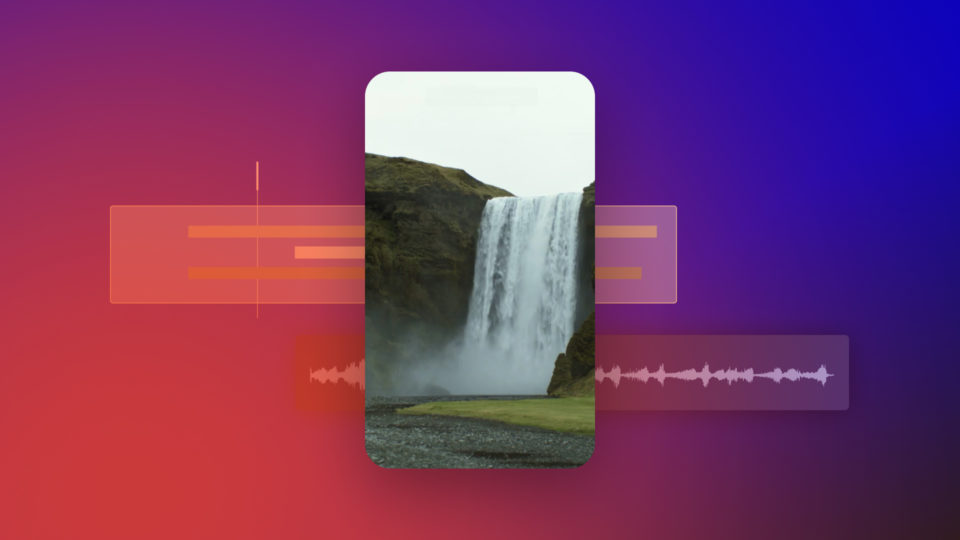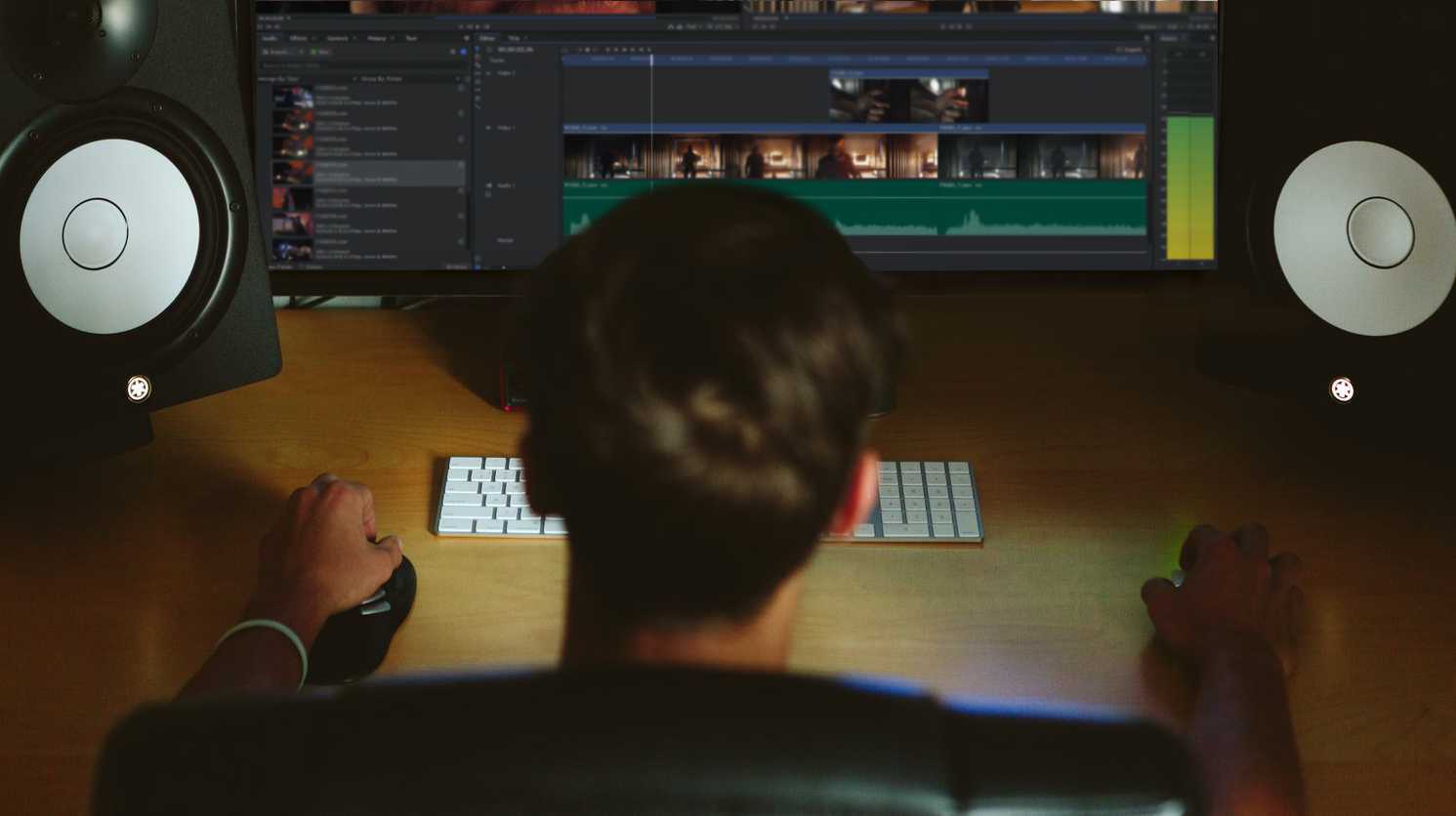We’ve all heard the term ‘video editor’ before, and you can be pretty sure it has something to do with post-production, but what does a video editor do really, and how does the job differ from other similar fields in the video industry?
The language of video and film is learned so early and instinctively that we take it largely for granted. Watch any commercial sequence, maybe a movie, music videos, or advertising commercials – all follow certain conventions we understand implicitly.
Many of those “rules” in video storytelling are achieved with editing. A process of refinement; to edit in any medium is to hone and shape, optimize and enhance work. In film terms, it exists in every selected shot, hold, cut, and much more.
What is video editing?
Video editing tends to begin when the production stage (where all the footage is captured) is completed. It’s the process of taking all of that raw footage and piecing it together to tell a story. In the film industry, professionals often consider the editing process where the movies are truly made.
Editor and FXhome friend mzak landed an HBO gig for his video on using editing to emphasize the feeling of empathy in the drama series Big Little Lies. A fabulous essay on its effectiveness, the video features concepts and techniques that can all be learned online for free.
So video editing is important, and video editors are essential to the filmmaking process. But what does it take to become one? What skills are needed to become a video editor, how do you gain experience, and most importantly – what does a video editor actually do?
What does a video editor do?
The typical responsibilities of a film or video editor are in readying content for distribution. The editor assembles raw production material into a coherent final product by threading together scenes, sounds, graphics, animation, and effects
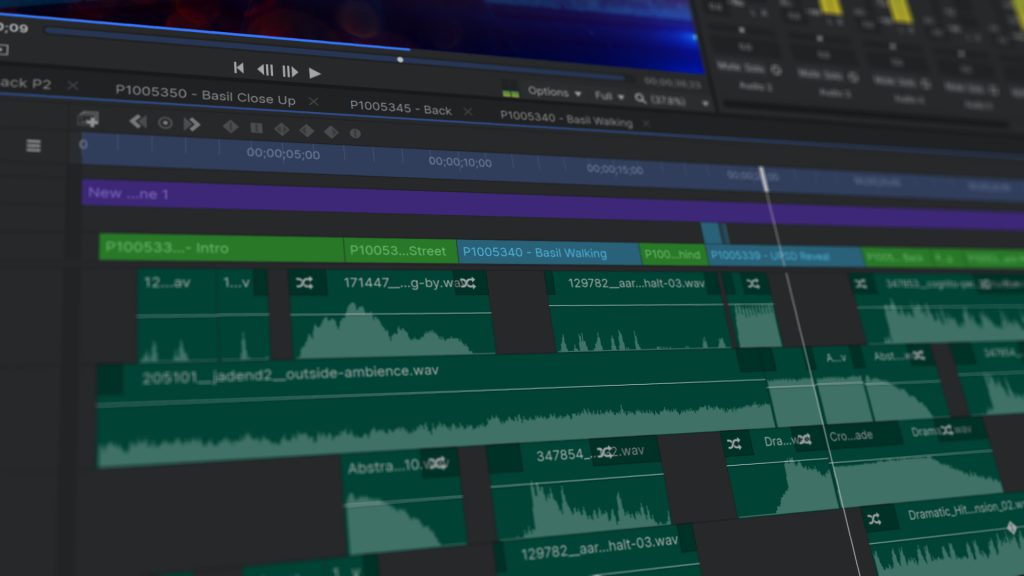
This could be for broadcasting, recorded screening, on-demand streaming, or indeed all of the previous. YouTube videos right up to commercial adverts, TV shows, and feature films all qualify – with studios, production houses, and media companies among possible employers.
Often working on a freelance basis, the role is not “entry-level” with professional posts varying by training and experience. Assistant editors might expect to earn a salary of $24-34K on average, while more senior jobs can command $47-$95K dependant on the production budget. Hours can be long and don’t always follow consistent working patterns. Video editors typically operate within editing suite environments, closely collaborating with the director or producer to shape the final product.
Video Editor Job Description
Just like the actors, film and video editors will follow a script of sorts. An initial brief should provide basic project information, perhaps expanding to offer a creative editorial template for what’s expected. Scene and shot lists, storyboards, and a copy of the script might add extra guidance.

Today, video editors will typically work in digital formats rather than traditional celluloid film. Knowing how to work with analog formats certainly isn’t a requirement to join the video editing industry in 2021. However, knowing how to transfer film to digital formats can open up opportunities for working with directors who use the format for stylistic reasons.
Preparing daily rushes, creating rough cuts, and managing the versioning of stored files would be important tasks here too. Some editors may also be asked to select music or get involved with writing services – which all add to the basic art of sequencing the action.
What skills do you need to be a video editor?
Becoming a film and video editor demands a variety of skills beyond technical ability. Patience and a critical eye for detail are both vital, with an appreciation of film theory also typically desirable.
When freelancing, one key skill is having the motivation to meet tight deadlines and manage time effectively, even while working alone. The best editors are also team players who are open to effective discussion and taking direction.
While not always dependant on academic training, some formal qualifications could also be desirable. A degree or diploma in communication or media studies, graphic design, or the visual arts are often recognized as relevant subjects.
Diploma courses on filmmaking, including video editing and film post-production, could also provide a useful foundation.
Learn with HitFilm
Training can also cover gaining experience with editing tools, the most crucial being software. Many film and video editing job postings will expect a working knowledge of certain suites such as Avid Media Composer and Apple’s Final Cut Pro.
Many of these have been synonymous with the film and video business for years but can be expensive to learn. Costly courses or buying premium software are particularly prohibitive for beginners or students, so thankfully, more accessible solutions exist.
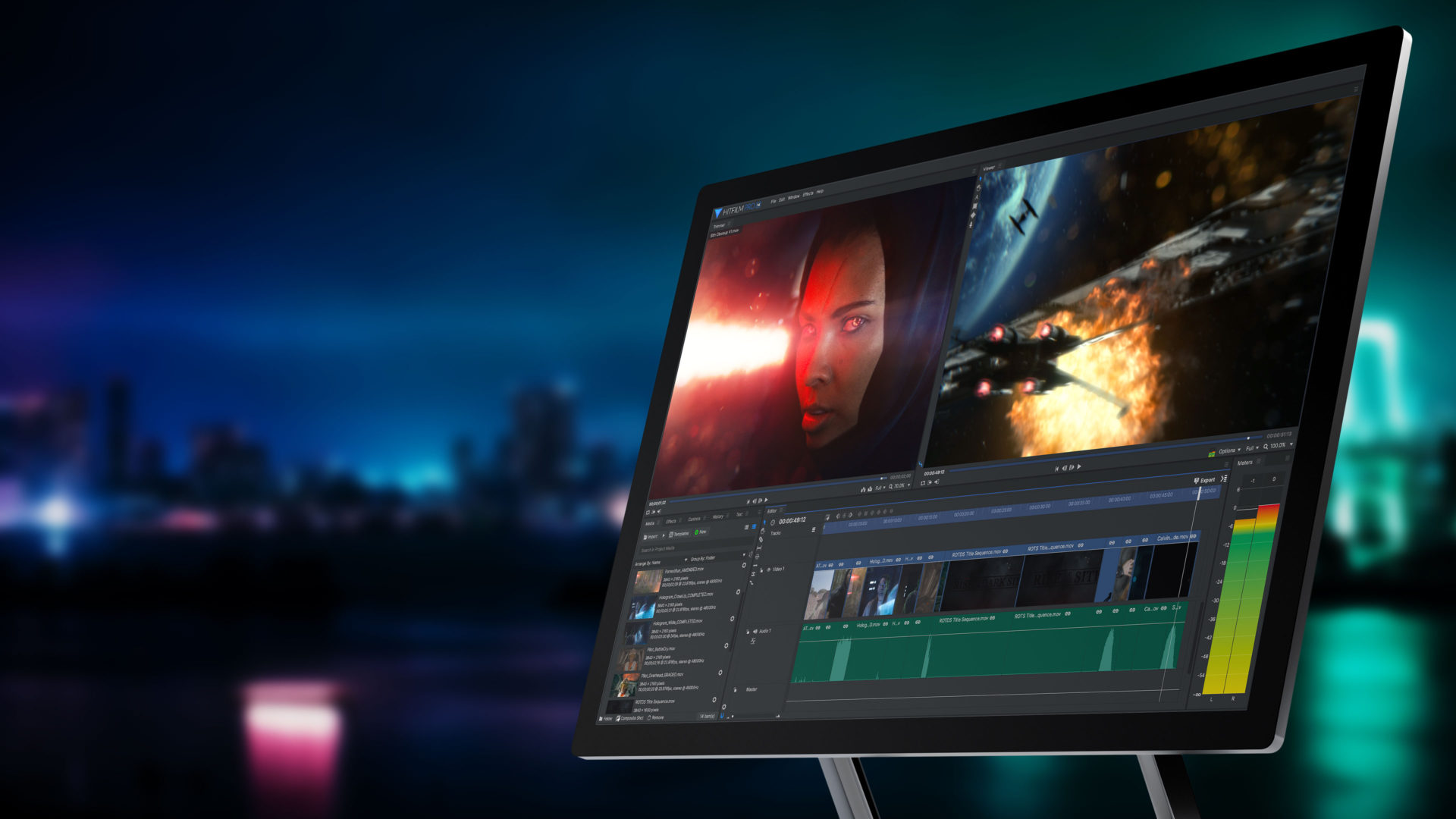
Available as a totally free download for Windows and Mac, HitFilm is an all-in-one video editing and VFX software supported by online learning resources. Every bit as equipped to master essential techniques, users of all levels can hone skills rapidly with FXhome’s YouTube channel.
Essential Features
HitFilm is particularly unique here because it adds powerful visual effects capabilities. While not central to a video editor’s remit, recognizing how animation, 3D modeling, and VFX fit the post-production workflow is undoubtedly useful.
As an editing environment, HitFilm boasts a non-linear approach with a timeline unlimited by video and audio tracks. Work simultaneously on scenes to achieve complicated composite shots and make quicker, sharper cuts with the dedicated editing trimmer.
Timeline clips can even be adaptively re-trimmed on the fly before adding instant dissolves or fades between shots. Such stock-in-trade techniques are then supplemented by built-in audio mixing, color correction, grading, and more.
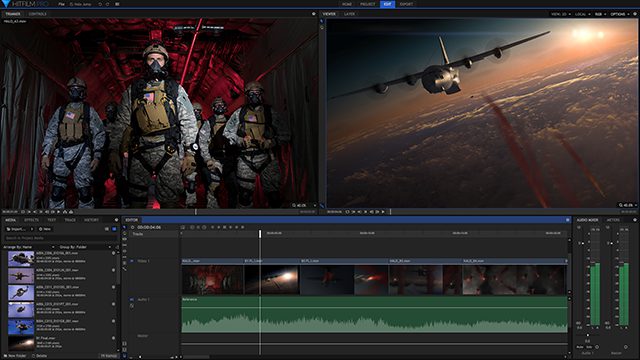
A Better Understanding
Hopefully, those looking to discover film and video editing, or pursue employment in the field, will better understand the role.
Those hoping to explore the art across personal projects or vlogs can still produce like the best with HitFilm, while would-be pros seek work. YouTube is furtive ground for awesome editing from the likes of This Guy Edits, with it all eminently achievable in Express. Novices can learn a skill, put it into practice, and share the results.
For career seekers, it’s also a great final tip to think about using such software to showcase core skills. A company or client is more likely to find and hire you when they can view evidence of talent. Like artists or designers might have a portfolio, hopeful video editors should assemble an engaging showreel.
No matter your aims or wherever they take you – have fun becoming the best editor you can be!

